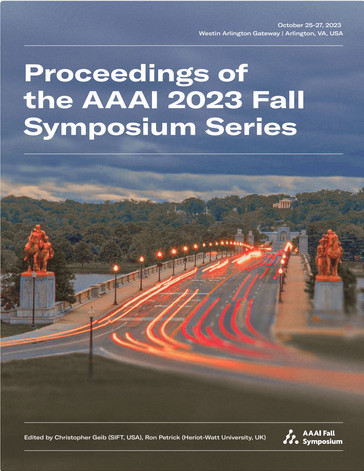Automating Knowledge Acquisition for Content-Centric Cognitive Agents Using LLMs
DOI:
https://doi.org/10.1609/aaaiss.v2i1.27703Keywords:
LLMs, Automatic Knowledge Acquisition, Hybrid Learning ArchitectureAbstract
The paper describes a system that uses large language model (LLM) technology to support automatic learning of new entries in an intelligent agent’s semantic lexicon. The process is bootstrapped by an existing non-toy lexicon and a natural language generator that converts formal, ontologically-grounded representations of meaning into natural language sentences. The learning method involves a sequence of LLM requests and includes an automatic quality control step. To date, this learning method has been applied to learning multiword expressions whose meanings are equivalent to those of transitive verbs in the agent’s lexicon. The experiment demonstrates the benefits of a hybrid learning architecture that integrates knowledge-based methods and resources with both traditional data analytics and LLMs.Downloads
Published
2024-01-22
How to Cite
Oruganti, S., Nirenburg, S., English, J., & McShane, M. (2024). Automating Knowledge Acquisition for Content-Centric Cognitive Agents Using LLMs. Proceedings of the AAAI Symposium Series, 2(1), 379-385. https://doi.org/10.1609/aaaiss.v2i1.27703
Issue
Section
Integration of Cognitive Architectures and Generative Models

